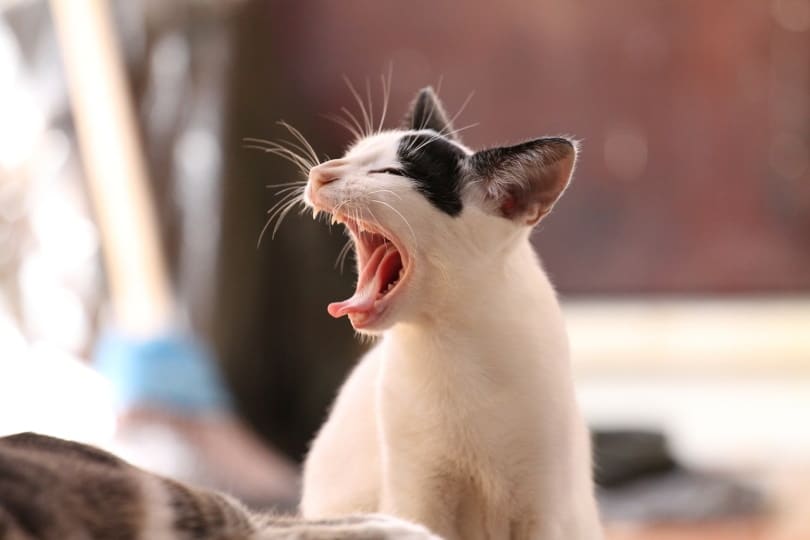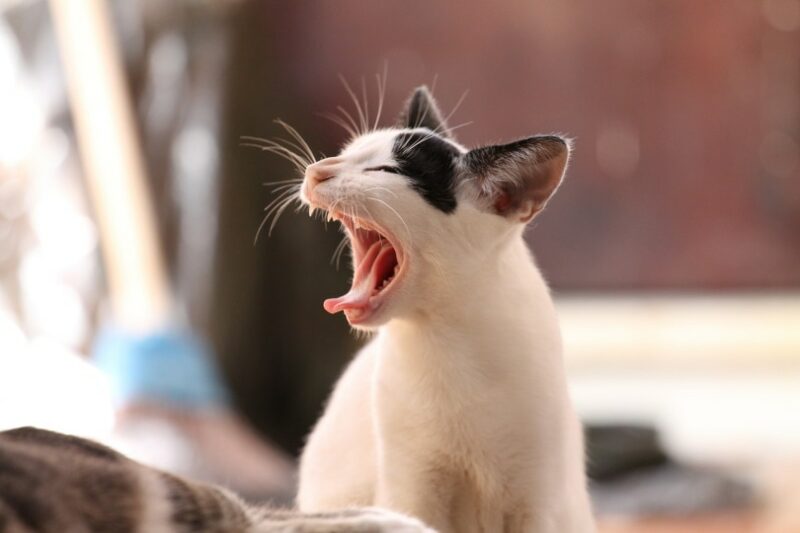If you’ve recently had your female cat spayed, you might’ve thought it would remedy her yowling. Once several weeks have passed, your cat is no longer in post-operative recovery and is no longer experiencing heat, so she would have no reason to yowl, right? Not necessarily. Yowling, like meowing and purring, is a form of communication for your cat.
So, being spayed won’t automatically mean your female cat will never yowl again. Hopefully, it will end any constant yowling, but your cat may still yowl when an occasion arises that requires it. Below, we’ll discuss the six most likely reasons a female cat would still be yowling after spaying.
The 6 Reasons Why Your Spayed Female Cat is Yowling
1. Stress & Anxiety
Stress and anxiety can make your cat yowl like the world is ending, and plenty of things can stress our feline friends out. Stressful situations can include moving to a new home, a new pet (or baby) moving into the house, or even large natural disasters such as tornadoes and storms. Your kitty can also become anxious over factors in their surrounding environments, such as loud noises or dogs insistently barking at them. In this case, yowling can be a way to express that stress and anxiety.
Another instance in which your cat can become anxious is car rides. Not all cats enjoy being put in a pet carrier and traveling in the car, whether long or short distances. For one, they can’t see what’s going on, or they also might be the type of cat who experiences motion sickness. Feeling sick and stressed is a double whammy, so is it any surprise they’d complain?
You can help ease your cat’s anxiety and stress when it happens. First and foremost, try limiting as many stressors as possible. You can’t always do this, but if it’s something within your control, do it. If there are loud noises outside, move your cat somewhere quieter. If there’s a storm, cuddle your cat or, at the least, stay nearby.
Whatever is causing your cat stress, it’s always a good idea to stay calm. Hearing your cat yowl can be a bit of a scary experience, but remaining calm will also help them stay calm. For highly stressed cats, consulting your veterinarian for calming medication may be helpful.
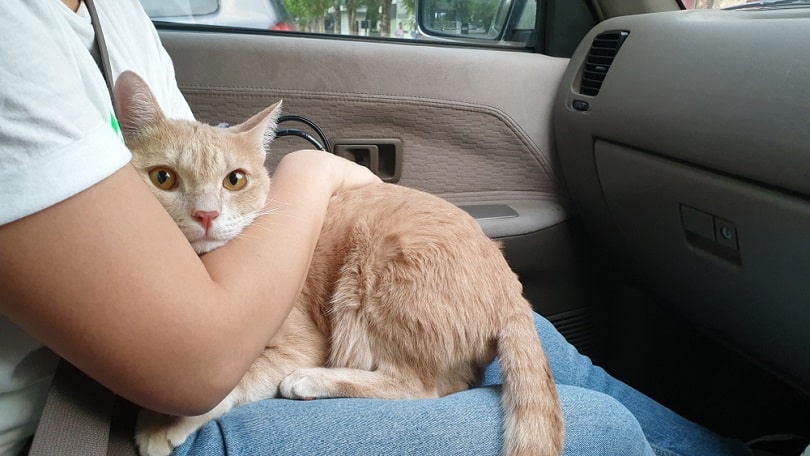
2. Attention Seeking
Your spayed female cat’s yowling may be a matter of her seeking your attention. Your pet might want you to play with you, or she could be hungry. If you haven’t noticed your pet trying to get your attention with meows or pointed looks, she could easily switch to yowling to get what she wants.
Cats can also get lonely, so if you come home to your kitty greeting you with yowls, it could be her way of saying, “I missed you; please don’t leave again.”
We know it isn’t always possible to give your cat what they want the second they want it, but if you find your cat yowling often to get your attention, try ignoring her when she’s yowling and paying attention when she isn’t. You don’t necessarily have to pay more attention, but add structured attention to your routine.
3. Pain
You’ve likely experienced this one. Your cat does something that ends up with them getting injured or trapped, and you hear a horrifying yowl that scares you to death. Yowling doesn’t automatically mean an injury that’s just happened, like a fall. Your cat could be experiencing pain internally that’s bad enough for them to cry about it instead of going to hide out over it.
If your pet isn’t stressed and you’ve tried meeting their needs, but they’re still yowling, it’s time to take them to the vet. The vet will be able to let you know if something is hurting your cat and, hopefully, fix the problem.
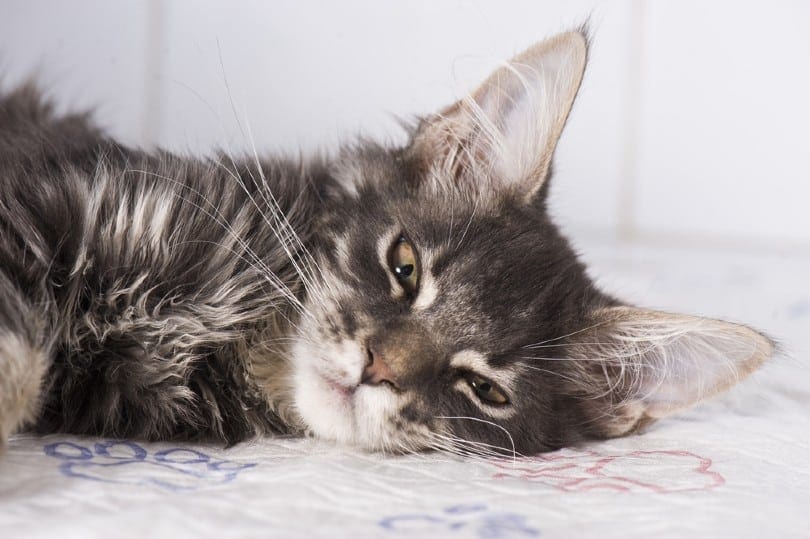
4. Being Territorial
It may seem like male cats would be more territorial than females, but females can be pretty territorial, too! If you spend all your time with someone or another pet, they can get jealous. The result may be yowling to get your attention, followed by trying to insert themselves between you and whatever (or whoever) is taking up your time.
There may not be much you can do for this issue, but you can try including your cat in interactions with other people (if your cat will let you) and giving equal time and attention to all pets in the home.
5. Senior Felines
Do you own a senior feline that’s been yowling throughout the night? There’s a good chance your cat is beginning to suffer from cat dementia. As with humans, cats’ cognitive functions deteriorate as they age. If your older cat is entering the early stages of dementia, you’ll find she is also likely dealing with loss of balance, weakening eyesight, irritability, disrupted sleep, and more.
Unfortunately, as with humans, dementia in cats cannot be cured. It can, however, be managed. If you suspect your elderly feline is suffering from this ailment, talk to your vet immediately so they can help you figure out the next steps.
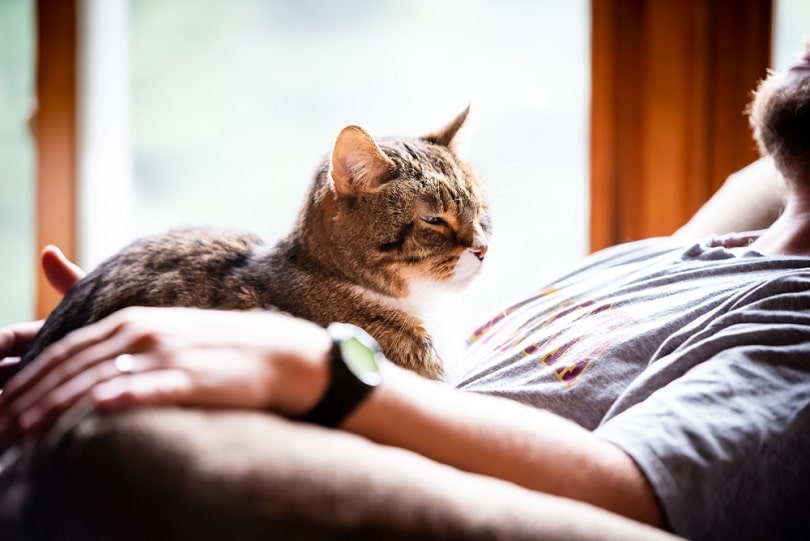
6. Ovarian Remnant Syndrome
Has it been months since your cat was spayed, yet she’s still showing signs of experiencing heat? If so, this could be due to a condition known as ovarian remnant syndrome. As you can probably tell from the name, this condition occurs when bits of ovarian tissue has been accidentally left behind during spaying. If even the tiniest bit of ovary tissue remains, it will produce estrogen, the hormone responsible for heat cycles. If that is what’s wrong, your cat needs to be treated as soon as possible.
Ovarian remnant syndrome can be extremely dangerous if it isn’t treated, so if you suspect this is the reason for your cat’s incessant yowling, get them to the vet as soon as possible. Your vet will do tests to see if it is what’s occurring, and if so, they will need to do a second surgery to remove the ovarian tissue.
 Conclusion
Conclusion
There are several reasons your spayed female cat is still engaging in yowling. Luckily, many reasons your cat may yowl aren’t too serious. These less serious causes of yowling can most likely be remedied by a few actions, making life much happier for you and your favorite feline. However, there are some situations where yowling excessively will involve a trip to your vet.
Featured Image Credit: Luis wilker Wilkernet, Pixabay

